Jimmy Barnes and David Campbell share how the rocker’s memoir and new doco healed their relationship
THEIR wives kickstarted the process of forging a father and son bond between Jimmy Barnes and David Campbell. But the rocker’s new doco has changed their relationship.
Music
Don't miss out on the headlines from Music. Followed categories will be added to My News.
THE hug between the father and son said everything.
Jimmy Barnes and David Campbell embraced on the Sydney Opera House stage, tears in their eyes and shakily, tenderly sang Reflections Of My Life.
Barnes had just confessed to a sold-out audience for his Working Class Boy: An Evening of Stories and Songs show in December 2016 that he had no regrets about his tortured childhood, battles with addiction and myriad mistakes.
Except just one. That he missed the childhood of his son, born when Barnes was a teenager and adopted by his maternal grandmother Joan.
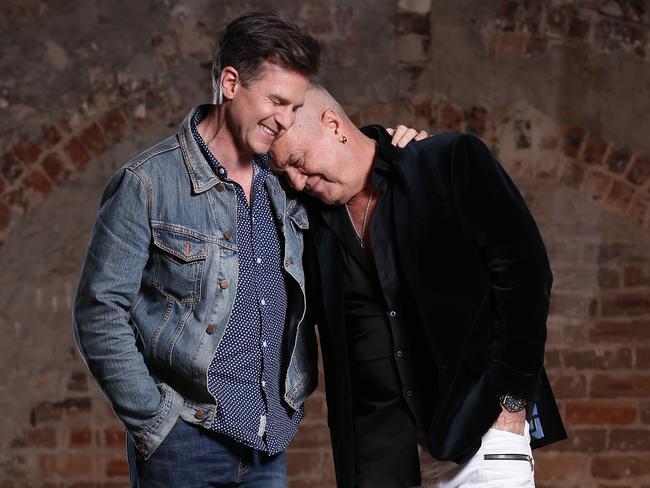
Campbell would spend the first 10 years of his life believing his mother Kim was his sister and Barnes was a family friend.
The pair share how their relationship has healed during Barnes epic journey of exorcising his own childhood demons in his two memoirs and now the Working Class Boy documentary.
“I was back behind the screen, ready to go out, and there was that big ridiculous picture of my bowl haircut up on the screen,” Campbell says about the Opera House moment.
“He was saying stuff — and he added different things, it wasn’t just the book. I came out and I was a mess.”
Barnes hosted a family and friends screening of the documentary and let’s say Kleenex would be a wise sponsor to secure for its cinema run.
“Seeing the doco the other night reminded me again, when he had said that “I don’t have any regrets but if I had one thing, I would go back …’. And even now, it’s a bit hard to say,” Campbell says, looking at his father, sitting beside him at Sydney’s Beta bar.
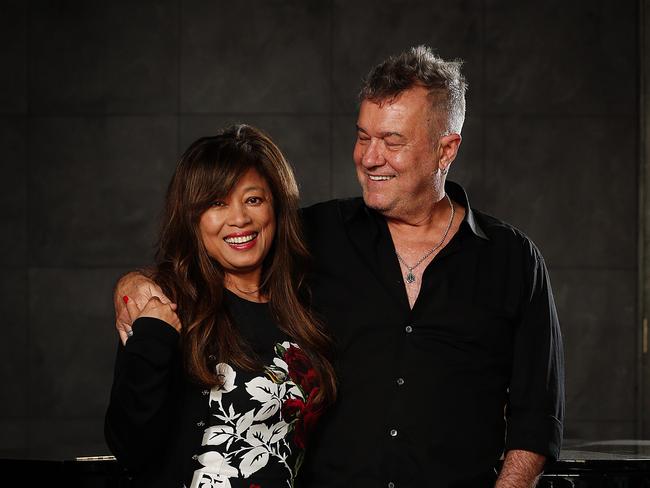
“That was releasing a lot for me. I was not expecting that. So when I came out to sing that night (Campbell imitates his shaky singing) it wasn’t until about the second verse that I felt I was getting back in my body again.”
Barnes would be allowed to visit Campbell when he was a boy. Jane Barnes encouraged her husband to reveal the truth and for them to become more involved in each other’s lives.
“There was no easy way for them to deal with it or us to deal with it. When it came out is when it to came out,” Barnes says.
“Like David said in the doco, I’d been around, I would come in and take him away up the river Murray for the day and you could see him looking at me thinking ‘Who are you? Why are you here? Why is this happening?’
“Imagine how difficult it was for his grandmother and Kim his mother? No one wanted the love of their life, this little boy, to think they had been lying to him.”
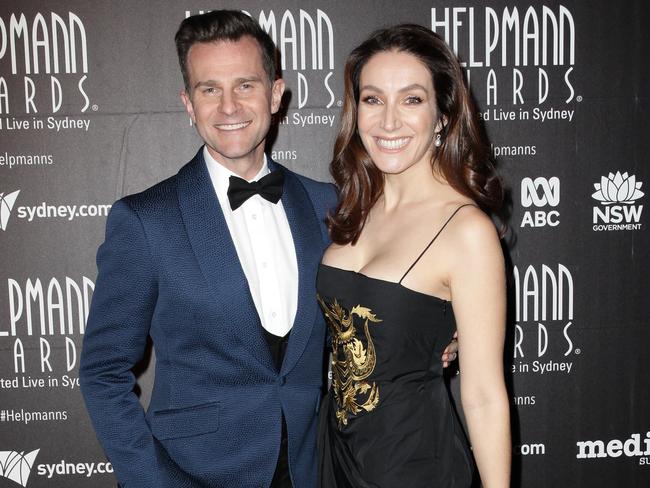
It would take a couple of decades before the father and son could mend their fences. Campbell said he had instinctively known that “something was up” in his family so the revelation hadn’t been a complete shock.
During his teenage years, he wrestled with conflicting emotions about his identity as his father’s solo career exploded post Cold Chisel and he became Australia’s most successful rock god.
He wanted to take his mates to the concerts but feared he would be bullied if it became common knowledge at high school that he was Barnesy’s son.
They circled around each other for years until Campbell’s wife Lisa Hewitt “did a Jane” and gave her a husband a push back towards his father.
“You were also going through addiction and your own issues and I went off to have my own career,” Campbell says to his father.
“I’m going to put a definitive mark on it and say I really properly (came back) when Lisa came into the family.
“We all got back together and it all started to happen. I reckon that was the time, finally in my 30s, when I went ‘Oh, this is all fine now.’”
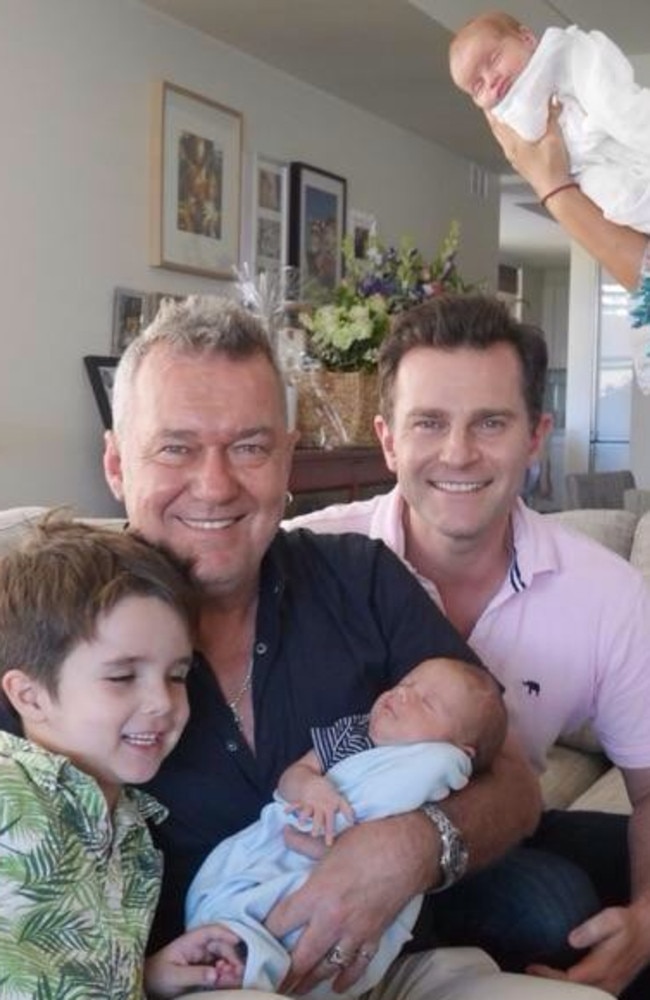
The rocker believes the women in their lives deserve as much credit for the healing of the family in the years before and since Barnes published his memoirs.
“At the point when Lisa came into the family, it wasn’t about mine and David’s life in the past. It was about his life in the future,” Barnes says.
“Both our girls are incredibly tough, incredibly emotionally balanced and intelligent, which is a whole new thing on our side of the family.”
Jimmy and Jane are doting grandparents to 13 grandchildren, including Leo and twins Betty and Billy Campbell, and the clan gathers most weeks at their home in Sydney or in the Southern Highlands.
There’s always lots of good food, kisses, hugs, laughs, shouting, singing and mini-person meltdowns.
Whenever they are not on the road or the promotional trail — Jane travels almost everywhere with Barnes — the grandparents are enthusiastic babysitters, helping their children and their partners juggle their working lives and caring for the brood.
Barnes has said part of his motivation in writing the memoirs was to reboot the Barnes “software”, in an attempt to not only improve his own life and make amends but lessen the impact of intergenerational trauma caused by his harrowing upbringing in a household ravaged by poverty and abuse.
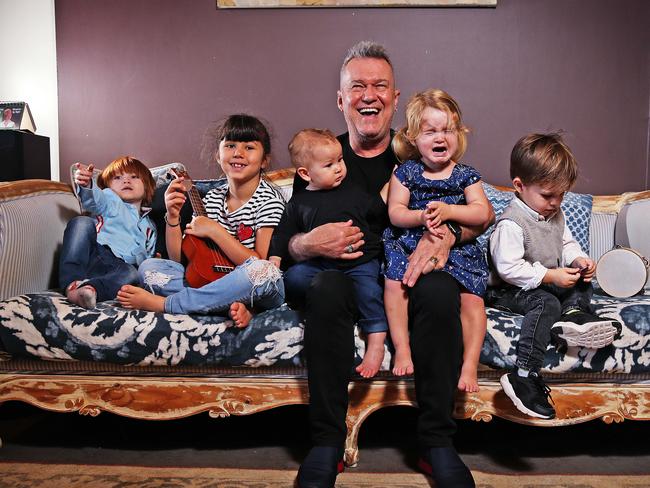
Spending time with his grandchildren helps that quest too. While he won’t go as far as to say he is making up for the time he lost with Campbell, Barnes relishes every minute he has with his son’s children.
“I wasn’t together enough to be present in David’s life when he was born. I wasn’t together enough, even when we did approach it,” Barnes says.
“Knowing David as I do and looking at his children and seeing the beauty and the purity of their youth, it’s probably selfish of me to regret not having that time with him.
“But life deals you these cards and you play them the best you can at the time. There were times there when it looked like we might never have been close for many reasons whether it was the situations, the families, addiction, my dealing with my stuff, him dealing with his stuff.
“When you get down to it, we are who we are now it is difficult to have any regrets because I don’t know if I could love David anymore.”
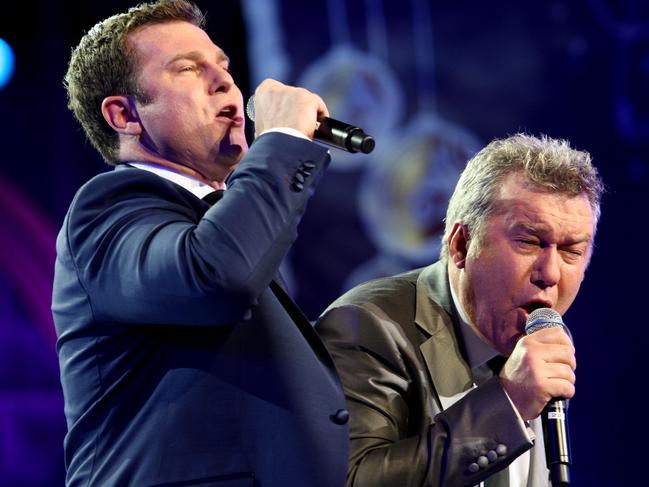
In the Working Class Boy documentary, Barnes is emotionally wrecked when he revisits the home he would run away from in Elizabeth, South Australia.
As he takes you through the streets of the neighbourhood where he was would run to escape the abuse at home, where he terrorised other teenagers and was bullied himself, where cars would try to mow him down and police would try to corner him, he becomes anxious, jittery.
Barnes says he knows there are good families who are happy with their lives there. But he can also feel the lost hope emanating from faded houses and worries someone else might be in pain or in trouble.
Campbell was also taken back to those streets when he watched the film, the memories of his own childhood memories triggered by a dead tree in the street.
That scene provoked a sharp intake of breath as he sat in the cinema.
“There was a shot of a tree in Elizabeth. Everything was fine, I felt OK watching the film but then the shot of that tree, I could feel myself go,” Campbell says.
“You could see unkempt houses, flat earth and a dead gum tree bent over. I remembered all of that and those houses where there was no hope.
“And it is still there! The council isn’t ripping those trees out and making everybody feel better about the place so they can care more about the place around them.
“And then Dad walked past this alley and I used to run past that alley. I got bullied and pushed around in an alley like that when I was Leo’s age.
“They ran straight between the houses. And you hoped to get to the end of that alleyway.
“I’d forgotten about until that one second in the film.”
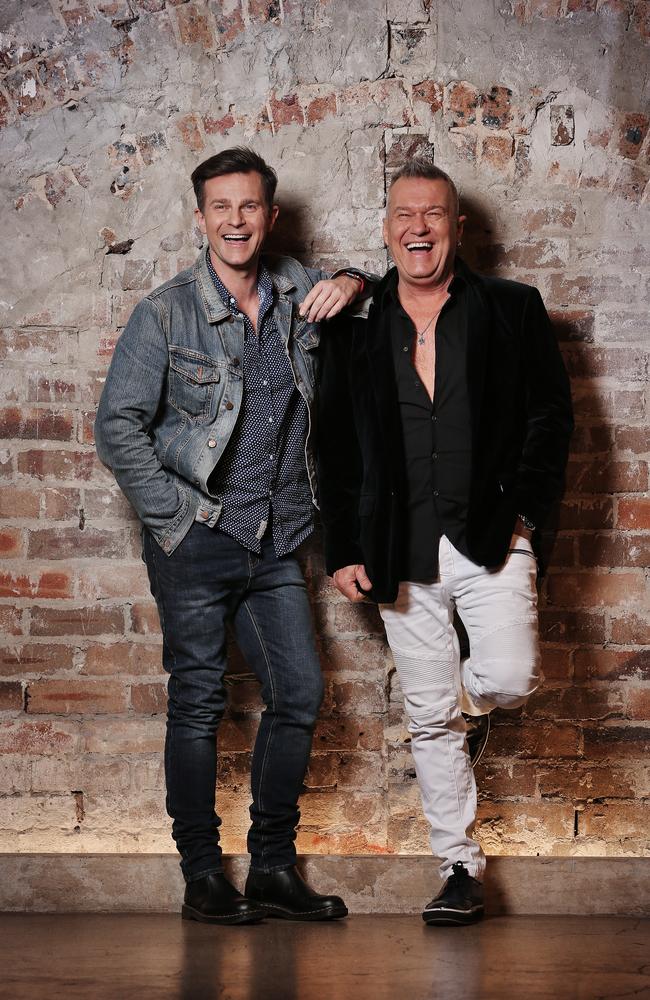
Campbell was equally shocked to discover his father also suffered from chronic episodes of self-doubt, when he questioned his value to himself, his family and fans.
During the shows supporting the release of his second memoir Working Class Man, which tracks his years with Cold Chisel and then as a solo artist, bringing up his family and years battling alcohol and drug addiction, Barnes shared his despair every time one of his records would go to No.1.
The more successful he became, the more he tried to sabotage himself.
His son has been sober since 2014. The Today Extra host, actor and singer quit drinking because he wanted to break the curse of his family’s alcoholism.
But that didn’t stop the white noise in his own head and Campbell says he regularly has episodes where he can “spiral from anxiety to my death in three minutes.”
“It was a revelation for me when you were talking about your self-worth. You were saying ‘I hate myself so much … I put out a record and it would go to No. 1 and thinking what do I have to do to make you all realise I’m a colossal f …-up”’
“And I thought “Jeezus, you thought that about yourself?’ To hear your dad that vulnerable and that amount of self-loathing because of everything … I didn’t know that.
“I see reflections of that in myself when I think I don’t deserve (what I have) … and I don’t know where that’s from but I think it is also a cultural thing about men, about toxic masculinity in Australia, it’s about how we deal with our emotions, it’s poverty, being an outsider or outlier and feeling like you don’t fit in even if your father is the greatest living rock god in Australia.
“All that stuff still plays in the back of my lizard brain.”
Throughout it all, father and son have had music.
Barnes tried to bond with Campbell as a child by inviting him on stage to sing.
He supported Campbell’s early years trying to establish his own career as a swing artist, performing small shows downstairs in the old Sebel Town House in Sydney before launching himself into New York’s influential cabaret scene.
They recorded Wichita Lineman, the Glen Campbell hit penned by Jimmy Webb, for the Double Happiness record Barnes released in 2005.
Both men agree music has been a bridge for them. They have often watched the other sing and wondered if one was sending the other a message. It seemed easier to sing to each other than talk about what happened back when Campbell was born and the intervening years before they began to forge a bond.
Campbell said he thought the 1984 hit No Second Prize was about him, that Barnes was singing about a second chance for them.
His father thought the country ballad Yard Sale that his son performed during a cabaret show at New York’s iconic Rainbow and Stars room in the late 1990s was about him. He believed it was a sign his son was opening the door to repairing their relationship.
They joke about their inevitable Dad and Dave show; the way they riff off each other is screaming for them to develop a two-handed musical comedy special.
It could always be a future creative endeavour from Luckiest Productions, the successful theatre production company David and Lisa Campbell founded in 2007.
“It will have to be before the bingo years,” Campbell jokes.
They crossed paths on the stage again recently during the Jimmy Webb and friends tour and watching Campbell sing reaffirmed Barnes desire for that Dad and Dave record.
“It is bound to happen. I was sitting watching David perform at the Jimmy Webb show, singing with Kate Ceberano and by himself and he has always been a great singer but the way he interpret songs now is much more open and free just as our relationship is,” Barnes says.
“We are no longer guarded. The sooner we make some sort of record together, the better.”
Working Class Boy opens in cinemas on Thursday.
The Working Class Boy Soundtracks is released today, with Jimmy Barnes donating his royalties to drought relief.
